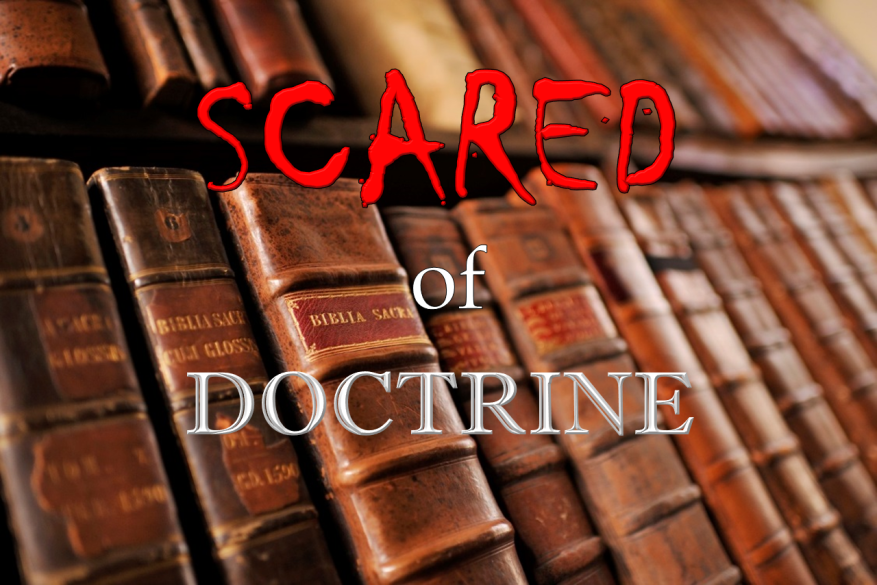Scared of Doctrine

Do you ever have moments where you become completely distracted by something new that you just noticed in something you have seen a thousand different times? When finding something like that you are both amazed and embarrassed all at the same time. Amazed that it was hiding in plain sight and that you never saw it, and embarrassed for the exact same reason. I had one of those moments this week while studying for something completely unrelated. I made a mental note continued with my study and after finished went back to what I had found. Now, mind you, this is not earth shattering, but it is profound. The scriptures speak many times of the importance of “sound doctrine”. Some will roll their eyes at these two words and that is ok, but by the end of this, I am positive that you will feel differently about this term.
The area of “doctrine” has been a battlefield within Christianity since its inception. In all honesty, it has been a battleground for all of religious practice, not just Christianity. That being said, these “doctrines” (for which entire countries and empires have waged war over) have classically been defined as truth statements/claims. The term likely most heard with in Christian circles is propositions. These are objective truth claims that apply to the entire universe regardless of circumstance. For Christians an example of this is the simple truth claim that Jesus died on a cross and rose three days later so that we could be saved in and through him. This is a simple but poignant example for which Judaism, Christianity, and Islam have gone to war over.
With this said, what if I told you that we have been understanding “sound doctrine” incorrectly? What if our understanding of the term was shallow in comparison to what the term is actually indicating? In 1 Timothy 1:8-10 Paul is discussing why the law exists. He makes it clear that the law is needed for the lawless, not those who do what is right. Within the text, Paul gives us another list of behaviors considered lawless.
What interested me however is what resides at the end of this list where Paul writes, “…whatever else is contrary to sound doctrine.” Now, why is thus significant? This is really easy to miss but also really hard not to see once you see it. For Paul, sound doctrine is more than truth propositions; they are ideas that lead to proper Christian activity. To further strengthen this assessment; let us take a look at what these two words mean in their original language.
The Greek word for “sound” that is used here is hygiaino. The word itself is actually a term for well-being and health. This means that sound doctrine is doctrine, which leads to well-being and health on a practical level. The word for “doctrine” here is didaskalia. This word is the noun form of the verb didasko, which means to teach. This means that the noun form also means teach but uses it as a noun. When used in this way it is referring to the content of the teaching instead of the act itself.
These two words in conjunction then mean that the content of teaching leads to well-being. In other words, “sound doctrine” looks like something. It is not the use of technical theological language or a perfect understanding of the hypostatic union of Christ (I wrote an article on this that you can find here if interested). No, sound doctrine is not the ability to recite or even believe these things, but it is the measure of whether that content has made an impact on who we are and how we conduct ourselves.
Doctrine then IS vitally important to all of us. It is not some elitist trope left to theologians and clergy so that they can communicate simple truths to the common folk. It is something that each of us use and practice every single day. The ideas and concepts that influence our worldview affect how we interact with the world around us. The only question is where does your doctrine come from? Peace and blessings friends and as always, thank you for reading. With Love in Christ
Justin

